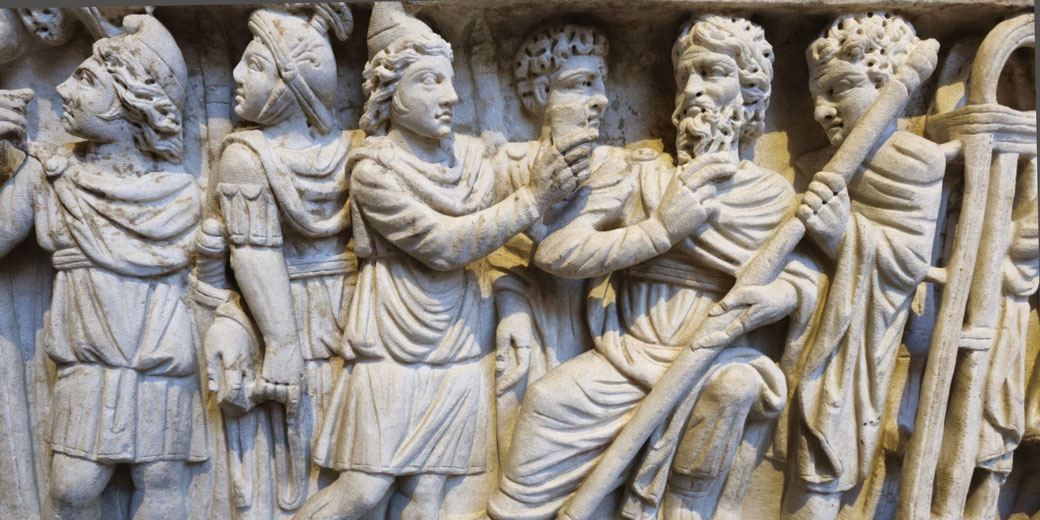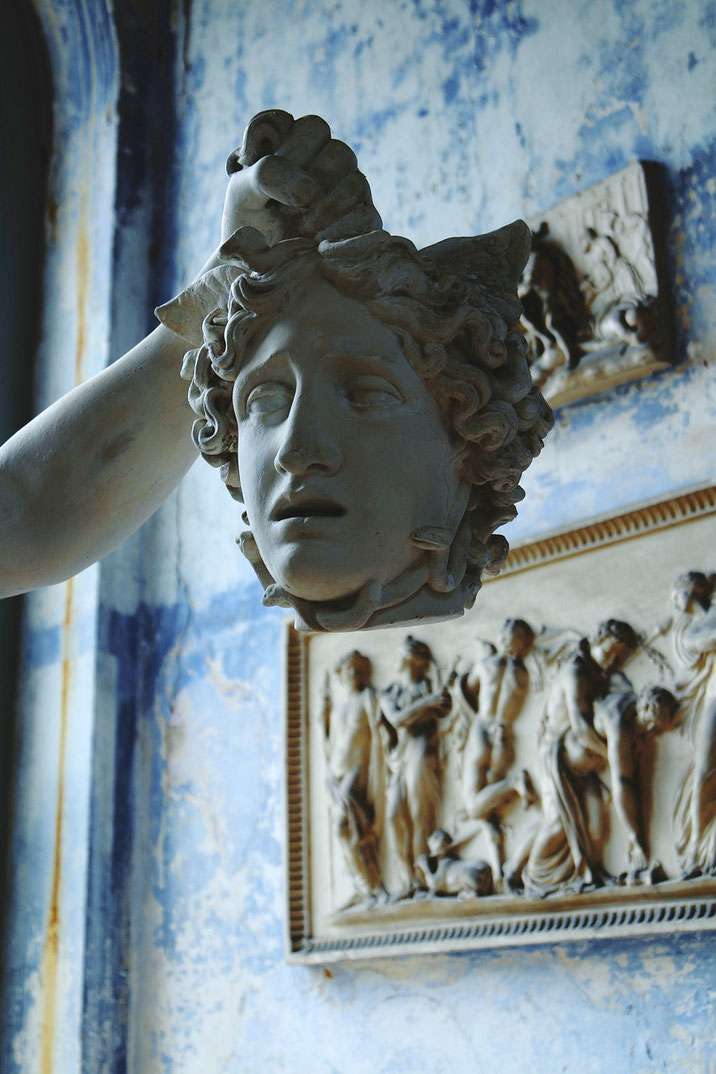Death of Crassus: the gory demise of Rome's richest man

The death of Marcus Licinius Crassus at the Battle of Carrhae is shrouded in mystery and legend. Was he killed in battle, executed by the Parthians, or did he meet a more gruesome fate at the hands of his enemies?
In this blog post, we will explore the different accounts of Crassus' death, unravel the myths and legends that have grown up around his demise, and examine the impact that his death had on Roman politics and the wider Mediterranean world.
Who was Crassus?
Marcus Licinius Crassus was a Roman politician, general, and one of the wealthiest men in Roman history. He was born in 115 BC and died in 53 BC.
Crassus was a member of the First Triumvirate, along with Julius Caesar and Pompey, which was an informal political alliance that dominated Roman politics in the late Republic period.
Crassus was known for his military campaigns and his successful suppression of the slave rebellion led by Spartacus in 71 BC.
He was also a shrewd businessman and made his fortune through real estate speculation, slave trading, and other ventures. Crassus used his vast wealth to gain political power and was elected consul in 70 BC.
Political rivalries
Despite his political success, Crassus was often overshadowed by his more famous allies in the First Triumvirate.
One of Crassus' main rivals was the Roman general and statesman, Pompey. The two men were bitter enemies and competed fiercely for political power and influence.
Crassus also had a contentious relationship with Julius Caesar, another prominent Roman leader, who was viewed as a threat to his own ambitions.
Crassus was motivated by his intense jealousy of Pompey's military successes and his own desire to be viewed as the most powerful man in Rome.
This rivalry led Crassus to launch a disastrous military campaign against the Parthian Empire, which ultimately led to his death at the Battle of Carrhae.
Seeking military glory
Before the Battle of Carrhae, Crassus was appointed to lead the Roman campaign against the Parthian Empire by the Roman Senate.
Crassus saw the campaign against Parthia as an opportunity to achieve military success and gain more power and wealth. He also hoped to rival the achievements of his political allies, Julius Caesar and Pompey, who had both gained military glory in their own campaigns.
However, Crassus' appointment was not unanimous, and some members of the Senate were opposed to the campaign, arguing that it was unnecessary and risky. Despite these objections, Crassus was able to persuade the Senate to support him and was granted command of a large army.
Disaster at Carrhae
Crassus had led an army of around 40,000 soldiers into Parthia, hoping to conquer new territory and gain military glory. However, the Parthian army, which consisted of around 10,000 cavalry and 10,000 infantry, proved to be a formidable opponent.
The Parthians were known for their expertise in horseback archery, and they were able to inflict significant damage on the Roman army without exposing themselves to Roman attacks.
The Roman forces were quickly surrounded and isolated by the Parthian troops and, over the course of many hours, Crassus' army was decimated, primarily by arrow fire from the horse archers. Suffering heavy casualties, Crassus knew he needed to negotiate with his enemy in order to avoid total disaster.
How did Crassus die?
There are several different accounts of how Marcus Licinius Crassus died at the Battle of Carrhae. The details of his death are somewhat uncertain, as there were no Roman survivors of the battle who could provide an eyewitness account. The various accounts of Crassus' death come from ancient sources, many of which were written years after the battle took place.
One account states that Crassus was killed after refusing to surrender to the Parthians. According to this version, Crassus was wounded in the battle and attempted to negotiate with the Parthians. However, the Parthian general, Surena, ordered that Crassus be killed, and his head was cut off and brought to the Parthian king.

Another account records that Crassus was killed when a Parthian soldier poured molten gold down his throat as a symbol of Crassus' greed and love of wealth.
Then, it is said, Crassus' head was used as a prop in a play which was being performed for the Parthian king.
Will we find out the truth?
While the circumstances surrounding his demise are still subject to debate and speculation, Crassus' ambition and desire for power, fueled by his rivalries and jealousies with other Roman leaders, ultimately led to his downfall and the disastrous defeat of the Roman army at the Battle of Carrhae.
The legacy of Crassus lives on, not only in the annals of ancient history but also in our understanding of the complex politics and power struggles of the Roman Republic.
What do you need help with?
Download ready-to-use digital learning resources
Copyright © History Skills 2014-2025.
Contact via email
With the exception of links to external sites, some historical sources and extracts from specific publications, all content on this website is copyrighted by History Skills. This content may not be copied, republished or redistributed without written permission from the website creator. Please use the Contact page to obtain relevant permission.





